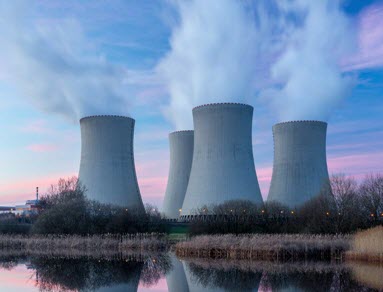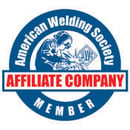Nuclear CNC Machining & Welding Services
 Nuclear power is a growth industry in the United States. Over 100 reactors around the country generate 20 percent of the electricity we use. Meanwhile, even more, reactors are under construction or working through the approval process. At Superior Joining Technologies, we understand that nuclear power plants are often required to operate constantly to match the demand for energy. Equipment in these facilities must be reliable and safe. We offer CNC machining, welding services, and NDT in nuclear power plants.
Nuclear power is a growth industry in the United States. Over 100 reactors around the country generate 20 percent of the electricity we use. Meanwhile, even more, reactors are under construction or working through the approval process. At Superior Joining Technologies, we understand that nuclear power plants are often required to operate constantly to match the demand for energy. Equipment in these facilities must be reliable and safe. We offer CNC machining, welding services, and NDT in nuclear power plants.
The Capabilities of CNC Machining
With CNC machining, three-dimensional cutting tasks are accomplished with a single set of prompts. Superior Joining Technologies specialize in turnkey, 5-axis nuclear industry CNC machining services. We can fabricate custom parts from practically any material. Some of the most common materials that we use include aluminum, tool steel, stainless steel, titanium, tungsten, and Inconel.
Benefits of CNC Machining in the Nuclear Industry
CNC machining has many advantages over manually controlled fabrication methods, where operators are needed to prompt and guide machining tools by levers, buttons, and wheels. These include:
- Consistent, repeatable results
- Manufacturing cost savings
- Increased efficiency
- Improved production speed
- Reduced downtime
- Heightened safety
- Superior surface finish
- Tolerances of +/-.0002”
- Complex surfaces machined in one pass
- Compound angle holes and undercuts cut quickly and accurately
- Any shape or form is possible
CNC Machined Components For Nuclear Applications
- Fuel nozzles
- Springs
- Reactor components
Welding Services
Welding is a manufacturing process that joins materials, using metals or thermoplastics, by causing fusion, which is distinct from lower temperature metal-joining techniques such as brazing or soldering, which do not melt the base metal. In addition to melting the base metal, a filler material is typically added to the joint to form a pool of molten material that cools to form a joint that is usually stronger than the base material. Superior Joining Technologies offers welding services for the nuclear industry. The demanding applications of the nuclear industry require heightened weld quality and consistency to ensure optimal performance.
- GTAW – GTAW is the process that joins critical components while producing welds with the utmost quality and purity. Includes NADCAP Manual GTAW, Micro GTAW, and Longitudinal Seam GTAW.
- Nadcap Laser Beam Welding – Laser beam welding uses a precisely focused beam of light to fuse metal together. Used on hard-to-access areas and extremely small components. Includes Micro Laser Beam Welding, Laser Beam Welding with Powder Deposition, and Multi-Axis Laser Beam Welding.
- Resistance Welding – Resistance welding joins metals by applying pressure and passing a current through the joined metal area. This includes Circumferential Seam Welding and Resistance Spot Welding.
Benefits of Welding in the Nuclear Industry
At Superior Joining Technologies, we have meticulous attention to detail that helps eliminate weld defects that can impact nuclear components. Other benefits include:
- Reduced weight
- Reduced cost
- Improved performance
- Increased production speed
Superior Joining Technologies, Inc is an AS9100, ISO9001, and Nadcap-accredited facility and service, provider. Our welding processes are approved by Boeing, GE, Unison, Collins Aerospace, and Safran.
Materials for Welded Nuclear Components
Nuclear applications use a variety of materials. We have the capability to work with the following materials:
- Aluminum
- Carbon steel
- Inconel
- Stainless steel
- Titanium
- Monel
NDT Inspection Services
NDT inspections keep nuclear plants compliant with the standards set by the U.S. Nuclear Regulatory Commission. Non-destructive testing (NDT) is a group of analysis techniques used to evaluate the properties of materials, components, or systems without causing damage. This evaluation method detects imperfections that may negatively impact equipment performance and longevity, as well as user health and safety. Superior Joining Technologies is a Nadcap-accredited leading provider of surface flaw detection assessments. We work to verify the reliability and safety of materials, products, and equipment with industry-leading surface inspection services.
- Visual inspection, also called VI or VT – Uses the naked eye to look over a piece of equipment for flaws. It is used for internal and external surface inspection.
- Liquid Penetrant inspection, or PT – Identifies surface discontinuities. It is ideal for use on non-porous materials. Liquid penetrant is pulled into cracks by capillary action. A developer is used to draw out penetrant from the crack and produce a surface indication. Our PT process includes sensitivity levels 2, 3, and 4.
- Magnetic Particle Inspection, MT – Detects surface and shallow subsurface discontinuities in materials such as iron, nickel, cobalt, and alloys. In this process, an electrical current is run through the component. Any crack or defects will interrupt the magnetic lines of flux and cause magnetism to spread out, which creates a flux-leakage field at the damage site. This field will draw metal particles that have been spread over the component to any flaws on or near the surface and create a visible indication of its approximate size and shape.
Our highly trained and knowledgeable NDT inspectors include two technicians who’ve earned Level III certifications in accordance with NAS410 (National Aerospace Standard) for PT and MT. A third technician is an ASNT-certified Level II in LPI. They provide complete traceability and documentation of product manufacturing to AS9100:2016, Rev. D, and ISO9001:2015 standards.
The Superior Joining Difference
Superior Joining Technologies, Inc is a woman-owned small business that works hard to provide high-quality products for our customers. We are a trusted provider of CNC machining, precision welding, additive manufacturing, laser marking and cutting, and NDT inspection services for the nuclear industry.






